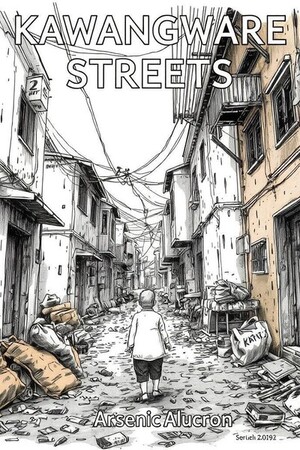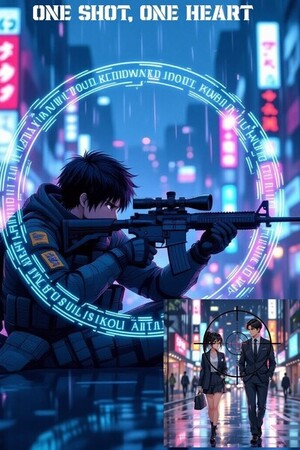Chapter 15:
THE TALE OF MUSA PART 2
KAWANGWARE STREETS
It was a warm afternoon in Kamuthanga. The sun hung lazily in the sky, and the hum of insects filled the air. Musa and Chris sat under the wide shade of a mango tree, sipping cold sodas from glass bottles, their feet dusty from working in the farm all morning. They didn’t speak about anything important, just some light village rumours and gossip but it was peaceful.
That peace broke with the purr of an engine. A sleek black Mercedes glided up the murram path, its tinted windows gleaming like a mirror. One look at it and you could tell it didn’t belong in the village roads full of potholes and livestock. It stopped just short of the tree.
Jack stepped out dressed in a shiny blue matching tracksuit fabric that caught the sun. He wore white Airforce sneakers, his watch shiny and gold. Despite being Chris’ cousin, he was much taller than him and had delicate facial features.
“Radaa,” Jack said with a casual smirk, removing his sunglasses as he stepped out.
“What?” Musa asked, blinking.
Jack let out a short laugh—not loud, just amused.
“Ah, I forgot,” he said, covering his mouth mockingly, “you villagers don’t speak Sheng’.”
Musa didn’t appreciate being called a ‘villager,’ but he let it pass. This wasn’t the time to pick a fight.
“My dad needs some help,” Jack said, as if continuing a conversation no one else had started.
Chris narrowed his eyes. “With what?”
“A play. You know the elections are around the corner, and my dad is campaigning. His main slogan is ‘For the People.’ So he’s sponsoring a production of Betrayal in the City in his hometown. Of course he knows about Chris’ ambition to becoming an actor but I also showed him the painting Musa did at Mulu’s funeral. He thought it was great, so here I am to give you both a job.”
Chris and Musa exchanged a glance. It was written in their eyes: this was it. A chance to do what they loved—and get paid for it. No discussion needed.
Jack handed over supplies—cans of paint, wood, rolls of fabric—and left them with one month to prepare. His father, Governor Jason Kiluwa, was away on a national campaign tour—Nakuru, Taita, Meru, Mombasa, and finally Machakos, his birthplace. He was gunning for the presidency and was considered a serious contender.
During that month, Musa barely slept. His days were already long—waking before sunrise to milk the goats, letting the cows out to graze, fetching water from the well, cooking ugali and greens over firewood, collecting eggs, cleaning, washing. His hands were always dirty, his muscles always sore. Now he added painting to that list—late into the night, under the flicker of a kerosene lamp.
But as they say, when you do what you love, you never work a day in your life.
Musa painted city skylines choked with smog, walls of prison bars, and banners smeared in red—these were all symbolisms well illustrated in the play. Chris rewrote the script line by line, injecting Kamba idioms and slang, making it hit closer to home. They called on friends—carpenters, drummers, old classmates. In Kamuthanga, you never needed to post an ad; people showed up if you asked.
The village schoolyard turned into a small theatre, buzzing with the sounds of hammers, drums, and lines being rehearsed.
Opening night arrived.
Reporters from Nairobi, cameras in hand, documented “The Governor’s Heart Project” as the press release called it.
Chris’s voice rang out across the field:
“We are not dogs! We are citizens! You can’t keep killing us!”
The crowd erupted.
Fake police dragged him off, handcuffs clinking, as the audience booed the actors in government suits.
Governor Jason stood and clapped, nodding approvingly. Political theatre—but he meant some of it.
After the show, he approached Musa and Chris. Whether it was sincere or calculated, they couldn’t tell.
“You two have a bright future,” he said. “It would be a tragedy to waste such talent due to lack of opportunity. Nairobi could use boys like you.”
Then he turned to face the cameras from KTN reporters.
“I will ensure that talent prospers in the 254!”
Cheers. Claps. Pictures.
////////////////////////////////////////////////////////////////////////////////////////////////////////////////////////
Later, Musa rushed home, excitement bubbling in his chest. But his father, Mr. Mbau, was already deep into a bottle of chang’aa. His shirt clung to his back with sweat, his eyes red, lips dry.
“Baba,” Musa said gently, “Mr. Jason offered me a job. In Nairobi.”
Mr. Mbau blinked, slowly raising his head. “Nairobi?” he slurred. “What are you chasing there? Dreams? Eh?”
“I could earn money. Help around here—”
“What you can help with is milking the goats, cooking, feeding the cows. That’s your job!”
“I want more—”
The slap came fast and hard. Musa’s face stung.
“You’re not going! And that Chris? He’s banned from this house! Filling your head with foolishness. You’ll stay and work!”
Musa said nothing. He nodded. But in his chest, something cracked.
His father wasn’t always like this. Before his mother died, he was kind, warm. But now… Musa sometimes wondered if his father blamed him for her death.
////////////////////////////////////////////////////////////////////////////////////////////////////
A week later, Musa and Chris stood under the stars.
“I’m not staying here,” Musa spoke softly. “Let’s do it.”
Jason’s car would come at exactly 10:05 the next morning.
That night, they put their plan in motion.
Musa did all the chores early—fed the animals, swept the compound. He cooked ugali and Kale, and stirred in just enough powdered sleep medicine to knock out his father for the morning.
Morning came. His father demanded breakfast as usual, grumbling about the sun. He wolfed down the food.
“Too much salt,” he mumbled. But he ate it all.
Soon after, he slumped forward onto the plate, snoring. Musa gently pulled the plate away and draped a kikoi blanket over him.
He packed his bag in silence and handed it to Chris.
At 10:10, the car pulled up. They got in and neither looked back.
Musa didn’t know it then —but it would be the last time he ever saw his father.
/////////////////////////////////////////////////////////////////////////////////////////////////////////
Nairobi hit them like a slap.
The noise was endless—honking, shouting, music blasting from matatus. The air smelled like hot oil, smoke, and sweat. Tall buildings scraped the clouds, so high Musa’s neck hurt trying to see the top. Glass, steel, and noise everywhere. People moved quickly, eyes focused ahead, mouths silent. No one smiled. No one greeted them.
“Are we even in the same country?” Musa whispered.
Jack wasn’t there. He was in school. A grumpy driver picked them up—bored, chewing gum, barely acknowledging them.
“Excuse me, sir. We’re hungry,” Chris said timidly as they neared the outskirts of town.
The driver groaned. “Be quick.”
They ran to a kiosk and bought sodas and snacks—bananas, bhajias, rolled chapatis—and stuffed them into a paper bag.
But as they walked back, a boy no older than twelve darted from nowhere, snatched the bag, and vanished into the crowd.
“Hey!” Musa shouted, but the boy was gone.
They had arrived in Nairobi. And Nairobi did not care.
FOR FURTHER INFO
BABA - FATHER
Chang’aa – Traditional home-brewed hard. Fermented and distilled from grains like millet and maize and is very potent.
Matatu/Mathree – small buses/ Nissans
*Note from Author* - I am writing to let you know i appreciate those who have continued reading, I know am not pumping the series as regularly and I would like to improve on that. You can always comment under the chapter to let me know what you think or maybe some suggestions. HAVE A READING DAY!




Please sign in to leave a comment.